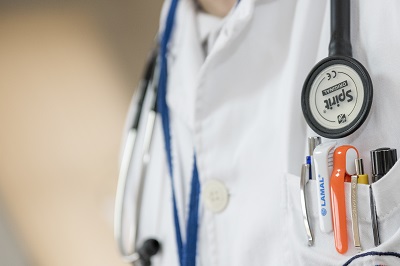If you have any worrying symptoms which could be linked to cancer, you must not hesitate to seek medical advice despite the coronavirus lockdown.
That’s the strong advice from England’s top cancer doctor amid fears that people are putting off going to their doctor or for hospital checks because they fear catching the virus. New research shows that one in 10 people would not contact their GP even if they had a lump or a new mole which did not go away after a week, while another third of people would worry about seeking help.
 Catching coronavirus, or giving it to their family, were among the top reasons why people said they would not come forward when they have cancer symptoms, along with fears that they could be a burden to the health service at a time of national crisis. But waiting to get help could have serious consequences for patients and put a greater burden on the NHS in the long run.
Catching coronavirus, or giving it to their family, were among the top reasons why people said they would not come forward when they have cancer symptoms, along with fears that they could be a burden to the health service at a time of national crisis. But waiting to get help could have serious consequences for patients and put a greater burden on the NHS in the long run.
Professor Peter Johnson, the NHS clinical director for cancer, stressed that NHS staff have worked hard to make sure people can get cancer checks and treatment safely, so there is no need to delay. Online consultations mean people don’t necessarily need to go to GP surgeries for check-ups, while COVID-free cancer hubs have been set up to provide surgery along with independent sector hospitals who have signed an unprecedented deal with the NHS.
These virus-protected hubs are up and running in 19 areas of the country to date so people can have their operation safely, with thousands of patients already having treatment through a hub. Even so, the number of people coming forward for cancer checks or treatment is well down on normal levels, suggesting many people are staying away and putting their health at risk.
Professor Johnson said: “NHS staff have made huge efforts to deal with coronavirus, but they are also working hard to ensure that patients can safely access essential services such as cancer checks and urgent surgery. From online consultations to the roll-out of cancer treatment hubs, we are doing all we can to make sure patients receive the life-saving care that they need.
“The wishes of patients and their families will always come first, and we have to make sure that people feel safe coming to hospitals, but my message is clear: people should seek help as they always would. We know that finding cancer early gives us the best chance to cure it, and ignoring potential problems can have serious consequences now or in the future.”
Following a sharp drop in cancer referrals from GPs, a major public information campaign has been launched encouraging people to contact their GP or 111 if they have urgent care needs, and to attend hospital if told they should. Cancers are detected earlier and lives saved if more people are referred for investigation.
Lynda Thomas, Chief Executive at Macmillan Cancer Support, said: “Macmillan wholeheartedly welcomes this NHS campaign encouraging people to contact their GP if they are experiencing the signs of cancer. We know that people are worried about the risk of infection from coronavirus and the pressure the NHS is already under.
“We urge you not to put it off, and don’t think you’re not a priority during coronavirus. Safeguard your own health and get any concerns checked out. Not diagnosing and treating many cancers fast makes treatment harder and can reduce the chance of survival.”
